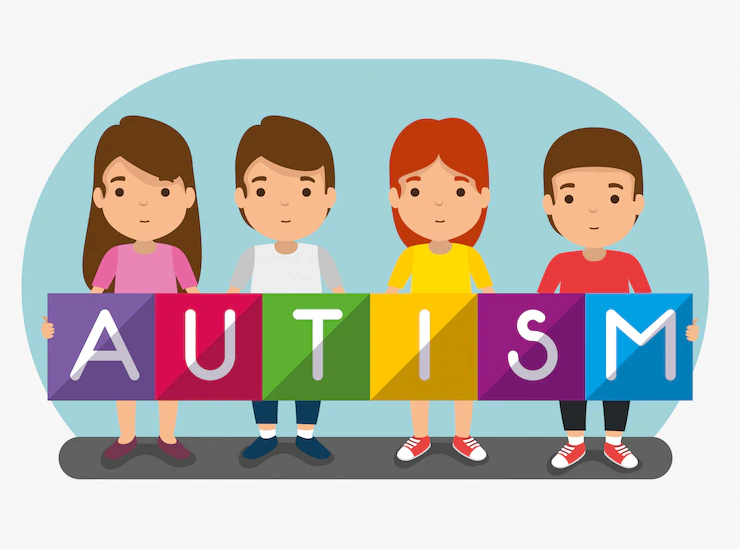Autism Spectrum Disorder (ASD) is a neurodevelopmental disorder that affects individuals in various ways and is characterized by difficulties in social interaction, communication, and repetitive behaviors or restricted interests. ASD is a spectrum disorder, meaning that the symptoms and severity can vary widely from person to person. Early recognition of the signs and symptoms of ASD is crucial for early intervention and support. In this article, we will explore the common symptoms of ASD and provide guidance on recognizing these signs in individuals.
- Social communication difficulties:
- Delayed or limited speech development.
- Difficulty initiating or maintaining conversations.
- Challenges with understanding nonverbal cues, such as facial expressions or body language.
- Difficulty expressing emotions and understanding the emotions of others.
- Impaired social interaction:
- Lack of interest in social interactions or difficulties engaging in reciprocal conversations.
- Difficulty establishing and maintaining friendships.
- Limited eye contact or avoidance of eye contact.
- Difficulty understanding or adhering to social norms and expectations.
- Restricted interests and repetitive behaviors:
- Engaging in repetitive movements or behaviors, such as hand-flapping, rocking, or spinning.
- Having intense, specific interests that are highly focused and often involve collecting or memorizing detailed information.
- Resistance to change in routines or rituals, and distress when these routines are disrupted.
- Sensory sensitivities, such as being overly sensitive or underreactive to certain sounds, textures, or lights.
- Communication challenges:
- Difficulty understanding and using non-literal language, such as metaphors or sarcasm.
- Echoing or repeating words or phrases (echolalia).
- Difficulties with understanding and following complex instructions.
- Limited imaginative or pretend play.
Recognizing these symptoms in individuals can help facilitate early intervention and support. It is important to note that symptoms may present differently in individuals and may vary in severity. If you notice any of these signs in yourself or someone you know, it is essential to seek professional evaluation and diagnosis from a qualified healthcare provider or specialist experienced in ASD.
Early intervention and support can make a significant difference in the lives of individuals with ASD. It may include therapies such as applied behavior analysis (ABA), speech therapy, occupational therapy, and social skills training. These interventions aim to enhance communication, social interaction, and adaptive skills to help individuals with ASD thrive.
Additionally, it is crucial to foster a supportive and inclusive environment for individuals with ASD. This includes promoting understanding, acceptance, and accommodating their unique needs. Educating oneself and others about ASD can help create a more inclusive society that embraces neurodiversity.
Remember, recognizing the signs and symptoms of ASD is the first step in supporting individuals with this condition. By promoting early intervention, understanding, and acceptance, we can create a world that celebrates the strengths and contributions of individuals with ASD.










